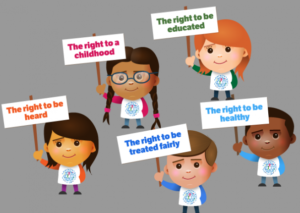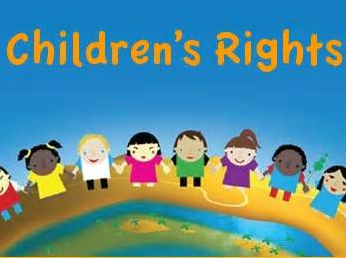|
Getting your Trinity Audio player ready...
|
Despite progress made over the past century in recognizing rights of children on a global scale, there is still much work to be done in ensuring that these rights are understood and put into effect.
In this article, we explore different aspects on the rights of children, including the Universal Declaration of Human Rights and its various provisions that guarantee protection for youngsters around the globe.

The right to quality education
To begin with, all children should have access to quality education that enables them to reach their full potential.
This includes the right to attend school without discrimination or exclusion based on gender, race, ethnicity or any other factor.
The right to health
Children have the right to a healthy life and access to medical care. This includes the right to adequate nutrition, clean water, proper sanitation and healthcare services.
The right to protection from violence and abuse
In addition, protect children from physical, sexual and psychological harm or exploitation. Moreover, protect them from neglect, exploitation and trafficking.
The right to freedom of expression
Children have the right to express their opinions freely and in a safe environment. To add on, children have the right to access information that is appropriate for their age.
The right to privacy
Children have the right to privacy in all areas of their lives, including online activities such as social media use or spending time on the internet.
The right to an adequate standard of living
Children have the right to an adequate standard of living, including access to shelter and food. They also should not be denied access to money or resources due to their age.
The right to protection from discrimination
All children have the right to equal treatment, without discrimination regardless of their race, gender, language, religion or financial status.
The right to participate in decision-making processes
Children have the right to participate in decisions that affect their lives. This includes being consulted on matters such as family planning and health care.
The right to leisure time
All children have the right to rest and leisure time away from work and other activities. They should also be able to access recreational facilities and engage in cultural activities.
The right to protection from exploitation
Children should not be exploited for labor or commercial purposes and should not be subjected to hazardous work conditions or work that is beyond their physical or mental capabilities.
The right to an identity
All children have the right to a name and nationality, which is essential for their development and protection.
The right to freedom of thought, conscience and religion
Children should be allowed to practice their own beliefs without fear of discrimination or persecution.
The right to access information
Children should be given access to information that is appropriate for their age and development level. This includes books, media, websites, etc.
The right to privacy online
All children have the right to privacy online, including the protection of their data from unauthorized use or disclosure.
The right to protection from online exploitation
Adults must not expose children to inappropriate content or subject to cyberbullying or other forms of online exploitation.
The right to safety and security
Protect children from exploitation and abuse. This includes physical violence, sexual exploitation and trafficking.
The right to a healthy environment
All children have the right to live in a safe and clean environment. Moreover, protect children from environmental pollution and other risks that can affect their health and well-being.
The right to freedom of expression
Children should be able to express themselves freely without fear of punishment or censorship. Therefore, this includes the right to access and share information online, as well as participate in cultural activities.
The right to an adequate standard of living
Finally, all children have the right to an adequate standard of living, including access to adequate housing, food, clothing and other necessities.
Conclusion
In conclusion, these are just some of the rights of children which ensures their safety, security and well-being.
Therefore, governments and other stakeholders for children should respect the rights of children to enable them to have an equal opportunity to reach their full potential.

